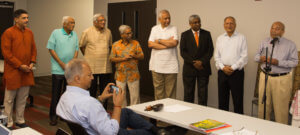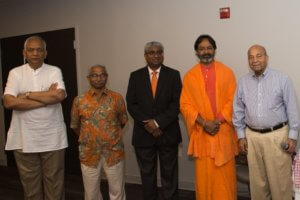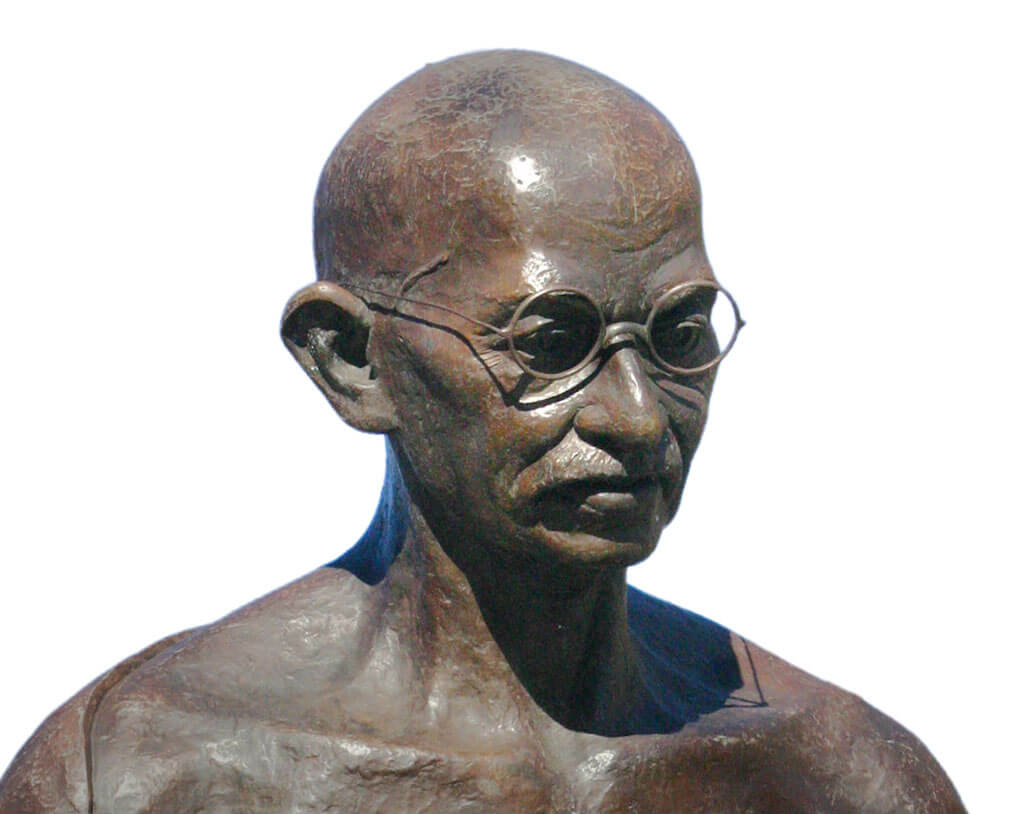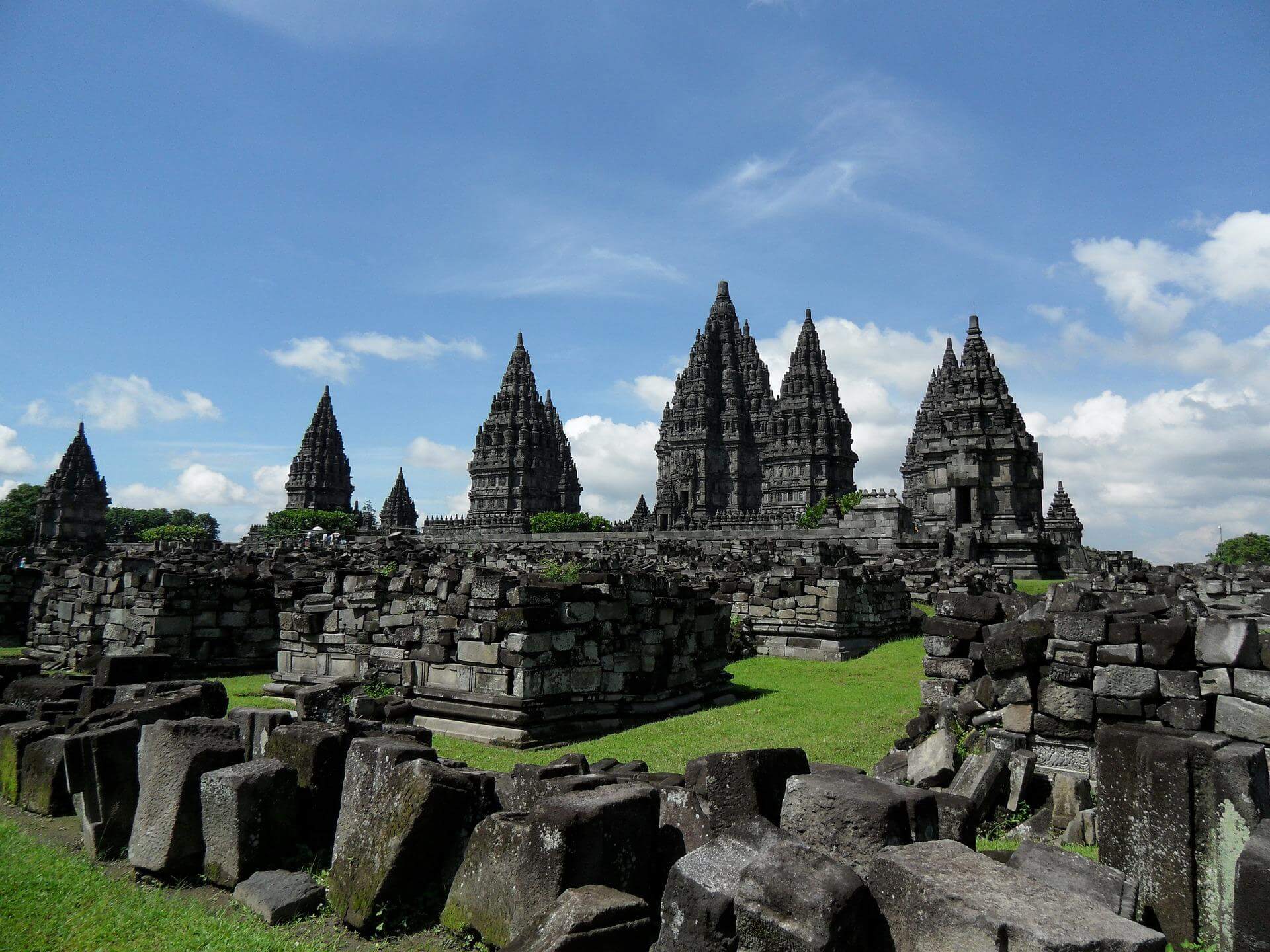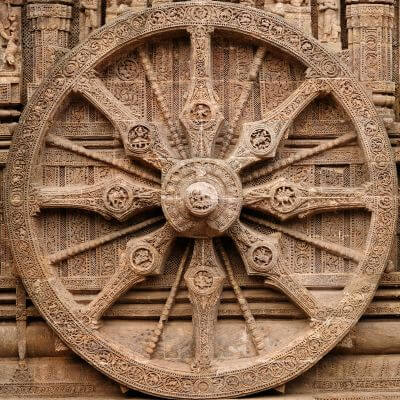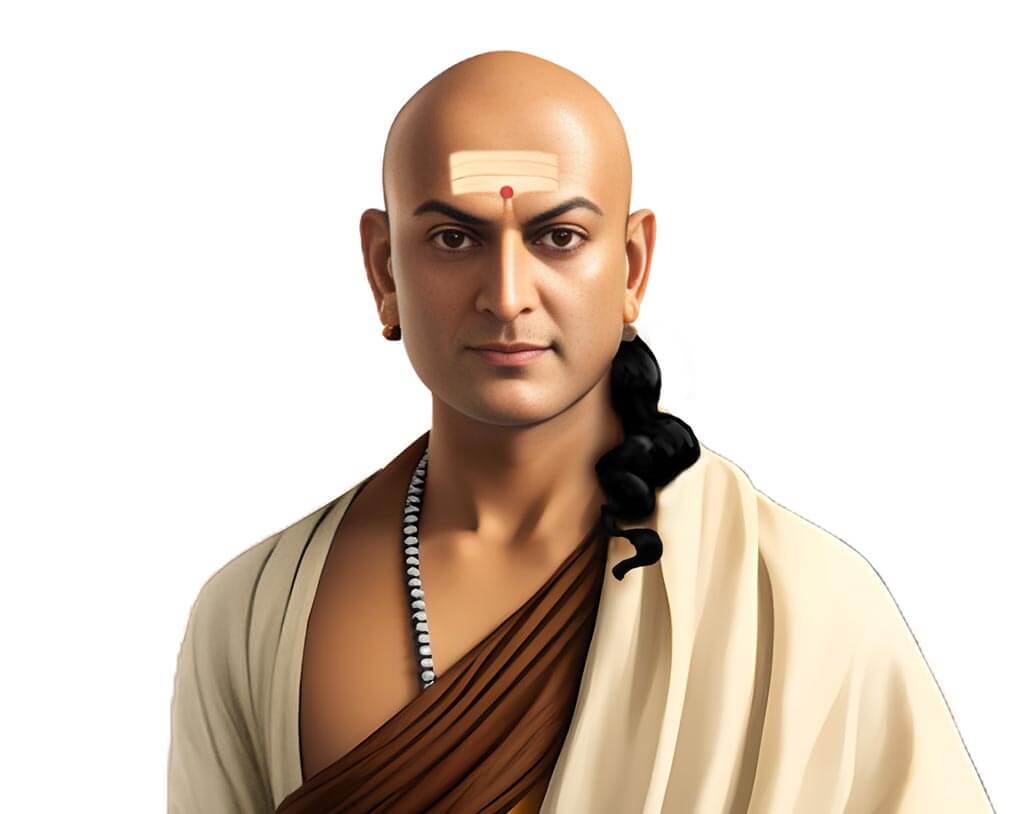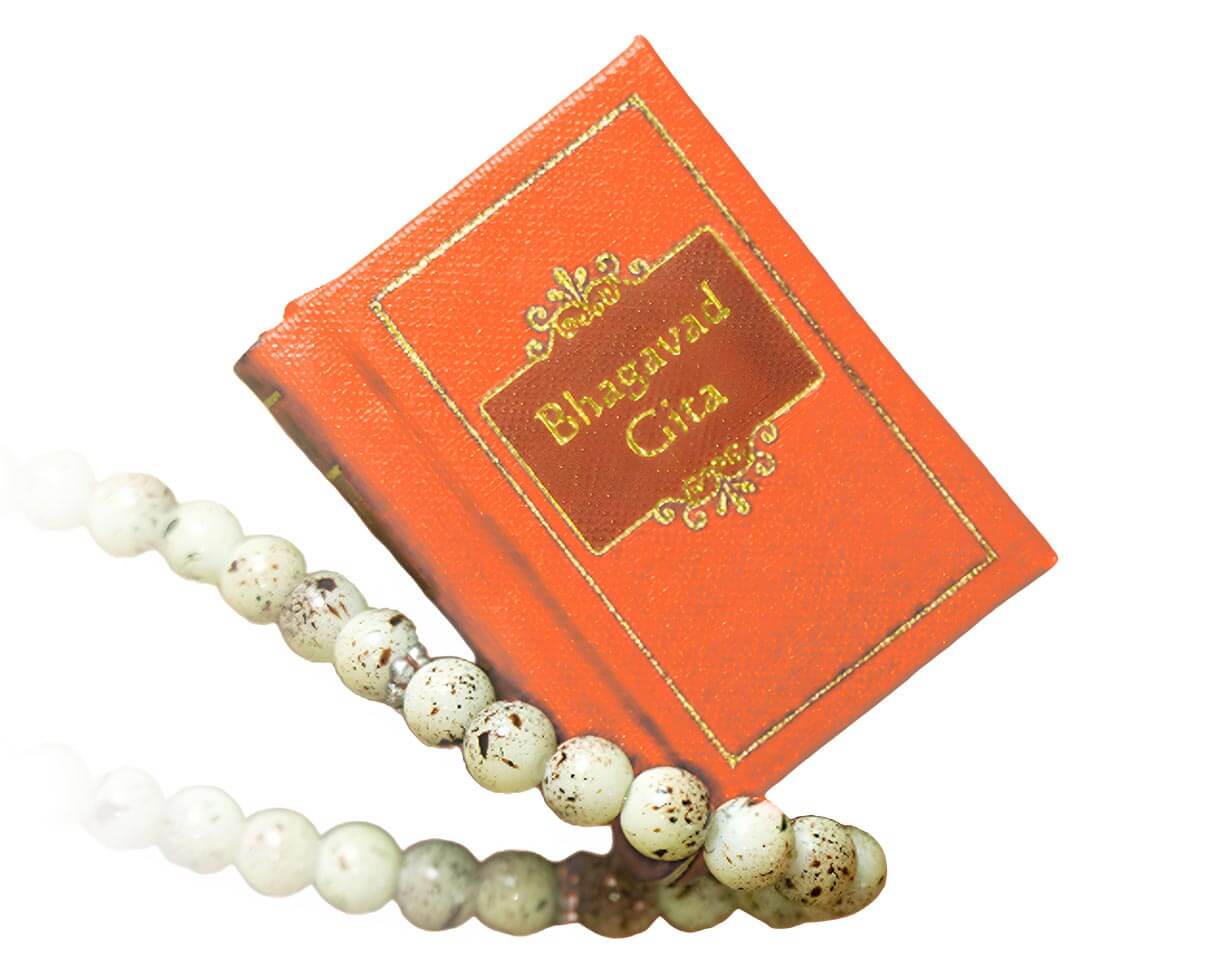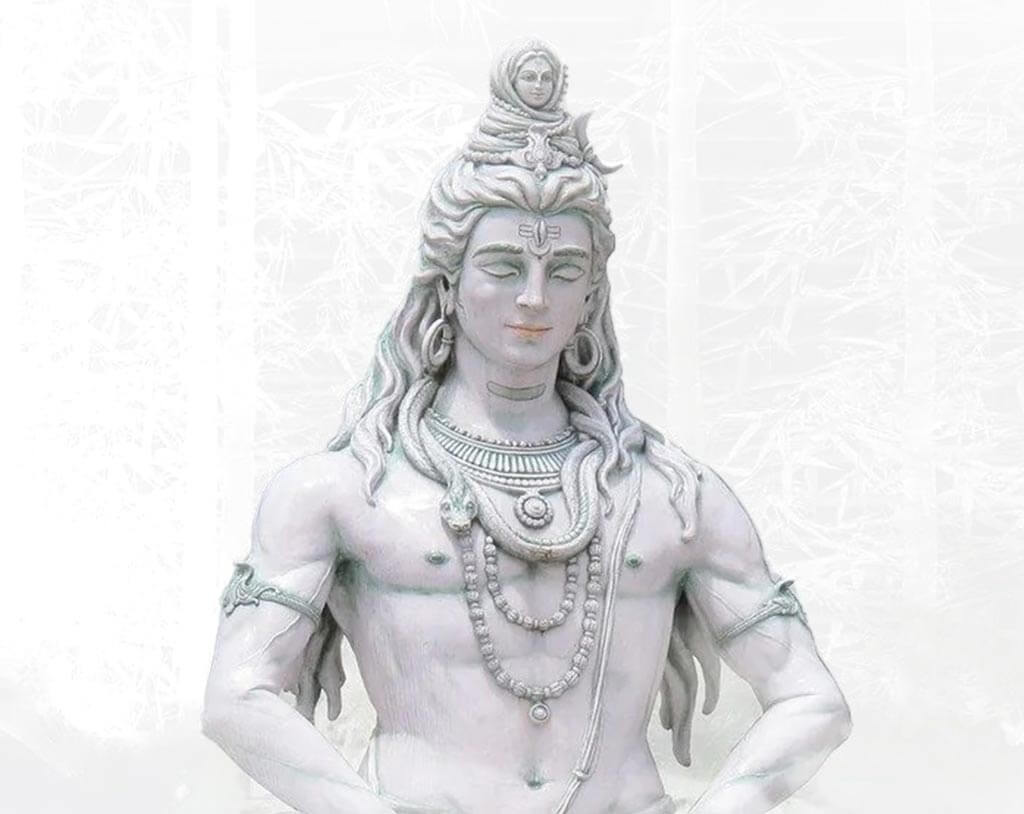Area of Study: Hindu Studies Foundation
BODHAK – The Gita Vidya Teacher Training
BODHAK – The Gita Vidya Teacher Training
Certificate in Hindu Civilizational Studies
Certificate program in Hindu Civilizational Studies
Certificate program in Hindu Civilizational Studies (C.H.C.S) is an in-depth exploration of the Hindu Civilization from a Hindu perspective. It provides the student with a grounded understanding of Hindu Dharma as one of the oldest, continuous, and still thriving cultures of the world. It unfolds the paradigm of Dharma, i.e., sustainability or natural order, through an exploration of its culture and knowledge traditions. This program enables the student to discover, reconnect and become profoundly established in the paradigm of Sanatana Dharma through a systematic study of the Hindu Civilization.
It comprises of 2 parts:
1. Exploring Hinduism
A set of courses to gain an understanding of Sanatana Dharma and Hindu thought – the bedrock of the Hindu Civilization, by exploring the history, facets, and practices of this culture, which is based on the principles of Dharma at its core. What is Sanatana Dharma? What is Hinduism? When did Hinduism start? Who is a Hindu? What makes Hindus different? Does Hindu thought have relevance in today’s world? Answers to such questions can be found in this “Exploring Hinduism” set of courses.
2. Hindu Contributions To The World
A set of courses to learn how the Hindu civilization and its knowledge systems had influenced world progress with contributions in the realm of both Matter and Mind. This series of courses looks beyond the myths set in motion by a few hundred years of colonial encounter and examines the evidence for the sciences, technologies, inventions, industry, prosperity, wealth and thought leadership that had made India a sought-after civilization across times. It is now accepted knowledge that India was at the top in world trade for around 2000 years with 1/3rd of world trade coming from India. But there is very little mention of how India accomplished this position.
What did it create? What did it trade in? This set of courses goes into the details of the individual components that made up this 33% of world trade and its impact on the world and in India. This subject matter stays unacknowledged and is rarely available for discussion. It also addresses the crucial question, “How could this civilization give all this and more – both to the East and the West?”.
It is a cyclic program of 8 quarters / courses, where participants can join during any quarter and get their Certification once they complete the 8 courses in any order and at their own pace, depending on their ability to join any quarter. This program is open to all – those with or without Indian or Hindu roots, wherever they may be in the world. It will help see the world from a Hindu, Bharatiya, Indic perspective and experience how different it is, from what we think we know.
Program Learning Outcomes: At the end of this program, students will be able to:
- Explain the Hindu Paradigm of Dharma
- Describe salient aspects of the Hindu Civilization
- Critique various misrepresentations of Hinduism
- Synthesize an expansive account of world history
- Establish an expanded sense of purpose and relevance
Required / Elective: Required
Prerequisites: Admission into a Certificate in Hindu Civilizational Studies
Faculty / Instructor: Dr. D. K. Hari, Dr. D. K. Hema Hari,
Quarter Offered: Spring 2024
The Certificate program in Hindu Civilizational Studies (CHCS) is a 12-credit hour program with an in-depth exploration of the Hindu Civilization from a Hindu perspective. It provides the student with a grounded understanding of Hindu Dharma as one of the oldest, continuous, and still thriving cultures of the world. It unfolds the paradigm of Dharma, i.e., sustainability or natural order, through an exploration of its culture and knowledge traditions.
This program enables the student to discover, reconnect and become profoundly established in the paradigm of Sanatana Dharma through a systematic study of the Hindu Civilization.
Certificate in Hindu Civilizational Studies
It comprises of 2 parts-
1. Exploring Hinduism – a set of courses to gain an understanding of Sanatana Dharma and Hindu thought – the bedrock of the Hindu Civilization, by exploring the history, facets, and practices of this culture, which is based on the principles of Dharma at its core. What is Sanatana Dharma? What is Hinduism? When did Hinduism start? Who is a Hindu? What makes Hindus different? Does Hindu thought have relevance in today’s world? Answers to such questions can be found in this “Exploring Hinduism” set of courses.
2. Hindu Contributions To The World – a set of courses to learn how the Hindu civilization and its knowledge systems had influenced world progress with contributions in the realm of both Matter and Mind. This series of courses looks beyond the myths set in motion by a few hundred years of colonial encounter and examines the evidence for the sciences, technologies, inventions, industry, prosperity, wealth and thought leadership that had made India a sought-after civilization across times.
It is now accepted knowledge that India was at the top in world trade for around 2000 years with 1/3 rd of world trade coming from India. But there is very little mention of how India accomplished this position. What did it create? What did it trade in? This set of courses goes into the details of the individual components that made up this 33% of world trade and its impact on the world and in India.
This subject matter stays unacknowledged and is rarely available for discussion. It also addresses the crucial question, “How could this civilization give all this and more – both to the East and the West?”.
It is a cyclic program of 8 quarters / courses, where participants can join during any quarter and get their Certification once they complete the 8 courses in any order and at their own pace, depending on their ability to join any quarter. This program is open to all – those with or without Indian or Hindu roots, wherever they may be in the world.
It will help see the world from a Hindu, Bharatiya, Indic perspective and experience how different it is, from what we think we know.
Program Learning Outcomes:
At the end of this program, students will be able to:
- Explain the Hindu Paradigm of Dharma
- Describe salient aspects of the Hindu Civilization
- Critique various misrepresentations of Hinduism
- Synthesize an expansive account of world history
- Establish an expanded sense of purpose and relevance
Target Audience:
This program is suited for those seeking personal growth in any one or more of the following dimensions.
1) Academics– Students can join this course program in addition to their ongoing academic programs of study, at timings that do not clash with their main academic programs, to obtain an additional certification with international credits.
2) Career– Professionals and individuals can join this as a Continued Education program to grow their careers by finding inspiration, ideas, conviction as well as direction to innovate or contribute to line with Dharma and sustainability.
3) Cultural– Where, youngsters, friends, parents and grandparents can join together or separately, from same location or even across continents to stimulate meaningful discussions about their roots, traditions and culture, within geographically dispersed families too.
How long will this program take?
This program is spread across 8 quarters and hence the minimum duration for this program is 2 calendar years. However, since it is cyclical, students can join during any quarter and complete the courses in a circle.
Program Certificate will be awarded only after all the 8 courses are completed. However, at the end of each course, students will have the option of downloading their respective course completion certificate for that quarter.
Structure of the Program:
This is a total 12 credit hours program.
The program comprises of 2 series of 4 courses each, i.e 8 courses totally across 8 quarters
Each course spans 10 online, live sessions with the faculty for about 100 minutes each. These sessions will typically be held on Weekends at time slots suitable for USA and India – 1 per week spanning 10 weekends or 2 per week spanning 5 weekends. These timings should in most cases be suitable for Europe and UK too. In case of other time zones, batches may be added subject to the number of registrations from there.
Program Context:
In today’s competitive world, where many are equally and well qualified, what is it that can set
someone apart? Is it a sense of purpose? Is it passion for making a difference? Is it SEL skills, i.e., Social and Emotional Learning Skills? These are abilities and attitudes that lie outside core literacies such as reading, writing and arithmetic.
They are skills that allow creativity, problem solving and communication with responsible social engagement at their core. However, unlike Core Foundational skills which can be taught, the SEL skills have to be cultivated using methods that can kindle interest, inspire ideas, stimulate thought and develop confidence.
Hindu Civilization is a reservoir of insights and knowledge, with an extraordinary track record of flourishing, survival, and sustenance, across millennia. A study of the Hindu Civilization thus is useful not only for those with Hindu roots but for all, as this Civilization is based on the universal order of Dharma, and its secrets are eternally relevant.
This program has been designed keeping the needs of the 21st century in mind and the relevance of the Hindu thought and the Hindu Civilization for the future of humanity. Getting to know the Hindu Civilization and its Knowledge will not only help in scaling up one’s soft skills for meeting future challenges but will also provide the Clarity, Confidence, Direction and Distinction needed to succeed in that future
No posts found.
Certificate Program in Hindu Studies
The Certificate program in Hindu Studies (CPHS). HUA prepares Students to engage with the world as a Hindu with confidence and clarity. Along the way, it also aims to develop in the student a lifelong love for service and contribution. At the end of the program, students will be informed, empowered, and inspired by the possibilities of living a deeply fulfilled life as a Hindu, and making a real difference in the world.
As Students discover the range and depth of Hindu thought, its uniquely awesome cosmology, and clear up some of the misconceptions and erroneous narratives that they have inherited, they will find themselves being profoundly transformed, naturally creating new realms of self-expression, and new possibilities for who they can now be in the world.
Program Learning Outcomes:
At the end of this Certificate Programs in Hindu Studies, Students will:
- Clarify the Hindu Paradigm, having acquired an overview of Hindu principles, practices, values, history, philosophy, society, culture, traditions, and civilization.
- Articulate the contemporary relevance of Hindu thought and contribute its value to the Hindu community as well as to humanity in general.
- Apply their learning to think from a Hindu context and develop strategies for the preservation and transmission of Hindu thought across the generations.
- Create new pathways for service, leadership, and global engagement from a Hindu context, and new realms of self-expression for themselves.
- Contribute with confidence and clarity, in unique and innovative ways towards fostering the culture and traditions of Hindu Dharma.
Program Context
Being successful in our professional lives, as a Doctor, Engineer, Business person, Entrepreneur, or a Lawyer and so on, equips us with a basic ability to compete effectively in the contemporary economy, to survive and succeed in the world. But it does not necessarily address a deeper dimension of human possibility i.e., the spiritual or the Adhyatmika realm.
In each of us lies dormant a need and a desire for deeper engagement with the world, to contribute, to make a difference and be of service in a profound and meaningful way. In each of us lies as yet unfulfilled the potential for leadership and global impact, sometimes even as yet unimagined.
In every one of us without exception there lies the possibility of going within, exploring the realms of deeper levels of consciousness, and transforming our connection and relationship with the cosmos itself, manifesting the perfection and possibilities that already lie within us. These are the realms of Dharma and Moksha, the unique dimensions of Hindu thought.
What is the purpose of our human existence? Does it have one? What does it mean to live a successful life? What is the source of deep fulfillment and contentment in our lives? What is Dharma? What is our Svadharma? How do we ensure that we fulfill the unique purpose and opportunity of our lives? How do we even discover it? Have we exhausted the possibilities of being alive already? How has Hindu Dharma addressed these questions?
In the Certificate Programs in Hindu Studies, Students will engage with these questions in a deep and authentic way, as they prepare themselves for service, leadership, and contribution, and for making a deep and lasting impact in the communities in which they live, as well as the world in general.
Whether you are interested in writing, speaking, and teaching, in counseling and healing, in social work, media or the performing arts, in education and curriculum development, in providing leadership in your communities, working with youth or in inter-faith domains, or simply engaging with schools and colleges, and the institutions of our contemporary world, or being of service in some other vital way, the Certificate Programs in Hindu Studies, will empower and enable you in your life’s journey.
This program will take work, commitment, and the ability to sustain your interest through several quarters. But what you will accomplish at the end, who you will become in the process, and all the new aspirations and possibilities that you will create for yourself, that you didn’t even know that you had, will transform you in an amazing and inspiring way. You will go beyond your real or perceived limitations, capacity and capabilities, and may even sustain and nurture the continued relevance of Sanatana Dharma for posterity as its ambassador.
Structure of the Program:
The certificate programs consists of a total of 24 credit hours of coursework. It can be completed at the earliest in 8 quarters, if the students can take 3 Credit hours per quarter, or more slowly over time, in any case, under five years. Students must take at least 15 Credit hours from the Core Courses in the Certificate programs. They may complete the remaining 9 credit hours by taking any set of elective courses from the community education program.
Pre-requisites:
The students must have completed the Orientation to Hindu Studies course minimally and must demonstrate a deep interest in service, contribution and making an impact from within a Hindu context, in order to be admitted into the Certificate Program in Hindu Studies. Students who have not taken the Orientation to Hindu Studies course, may enroll into the Certificate Program in Hindu Studies, with the understanding that they will register into the course immediately.
Who will benefit?
This program can benefit everyone who is interested in living a life of service and contribution, who wishes to engage with the communities in their lives in a meaningful way, in a Hindu context. It applies to all those who wish to reconnect deeply with their own Hindu cultural roots, develop a deeper understanding of their own unique place in the world.
For Non-Hindus who have developed some level of curiosity and interest in the Hindu world, this program will deepen their engagement with that world, and open up entirely new possibilities for contribution and service.
List of courses
The list of Courses available for Students as part of the Certificate Program in Hindu Studies is listed below. Each course is designated as a Core course or an Elective course. These courses may be taken in any sequence, as long as the student first completes the Orientation to Hindu Studies course, at the very beginning of the program.

Sustainability is Sanatana Dharma
CPS2003 – (C.P.H.S – Elective Course) This course explores how the modern quest for sustainability relates to the eternal search ... Read More

Self-knowledge and the quest for Happiness
HSF2102 - (CPHS - Core) In this course, we will take an inward journey to discover that one was always ... Read More
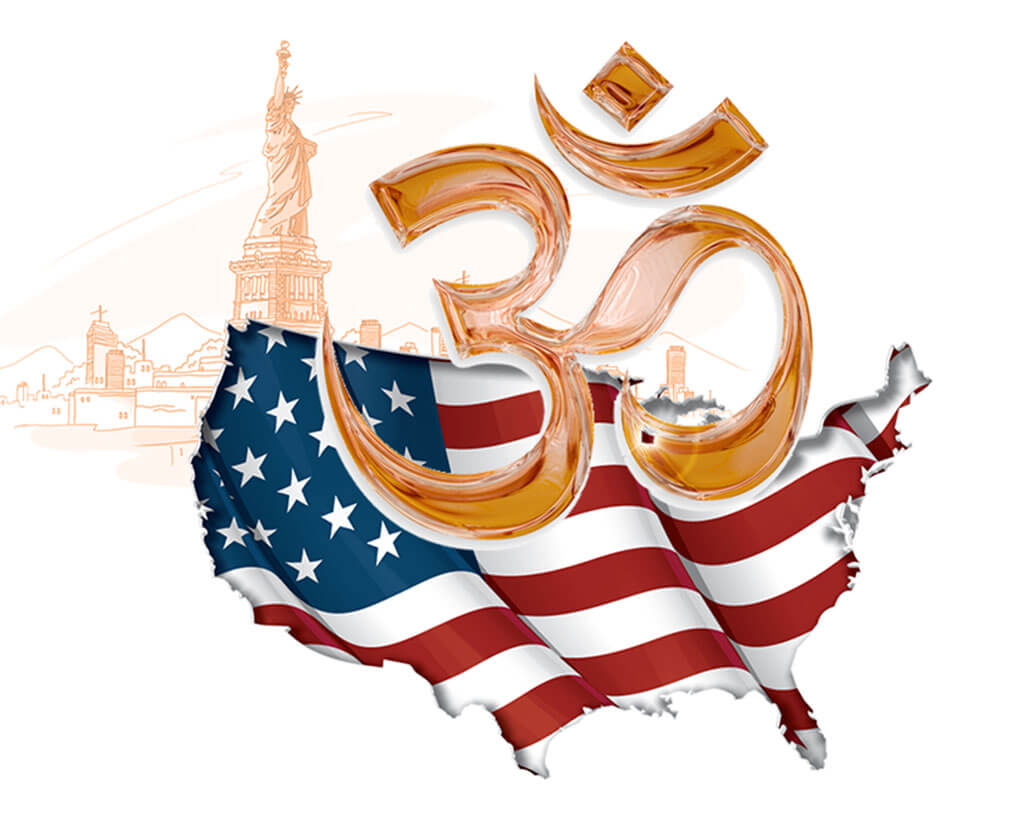
How Hindu Dharma Transformed America
HAM2100 – (CPHS – Core Course) How Hindu Dharma Transformed America - This course explores the history and impact of ... Read More

Reconstructing Hindu History – The Commissions
HAM4201 – (C.P.H.S – Core Course) This course is the first of a two-quarter course sequence that examines the scientific ... Read More

Reconstructing Hindu History – The Omissions
HAM4202 – (C.P.H.S – Core Course) Reconstructing Hindu History - The Omissions course is the second of a two-quarter course ... Read More
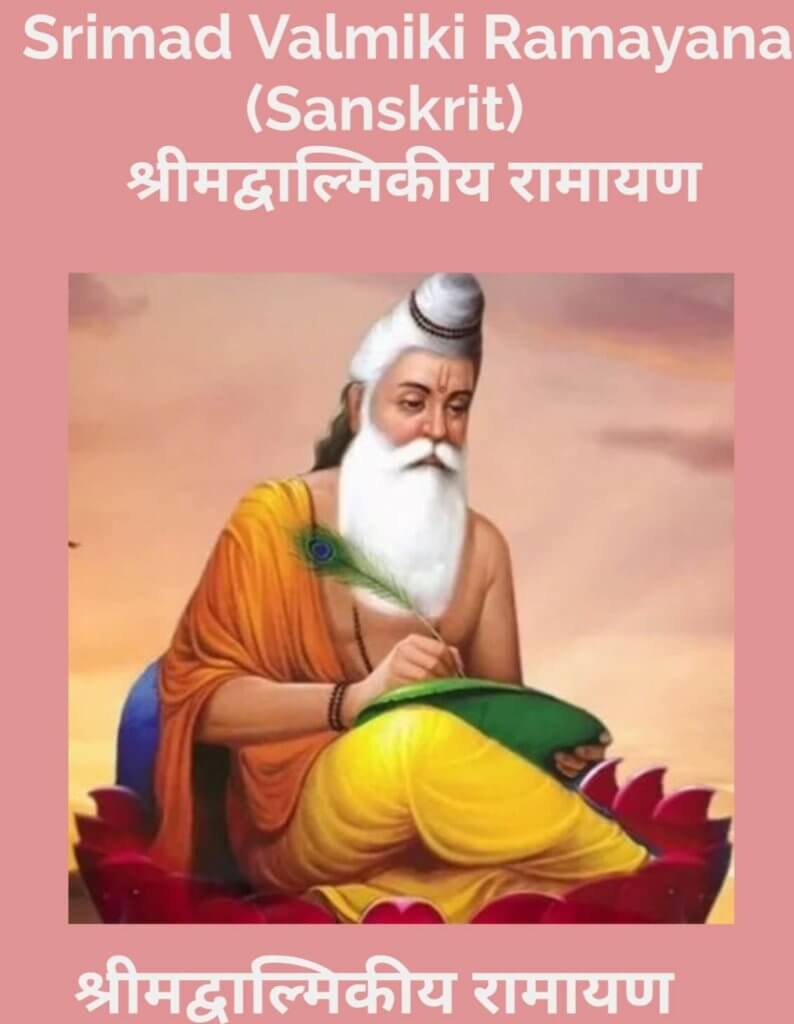
Lessons from Valmiki Ramayana
HSF1005 – This course will enable students to get a well-versed understanding of the story, lessons, and teachings of one ... Read More

Lessons from the Valmiki Ramayana For teens and Parents
HSF1006 - This course will help the teenagers and parents get a well-versed understanding of the story, lessons, and teachings ... Read More

Discover the contemporary Relevance of Hindu Dharma
HSF1007 – (C.P.H.S – Elective Course) This course, targets an age group of 18-35 and will explore the question – ... Read More
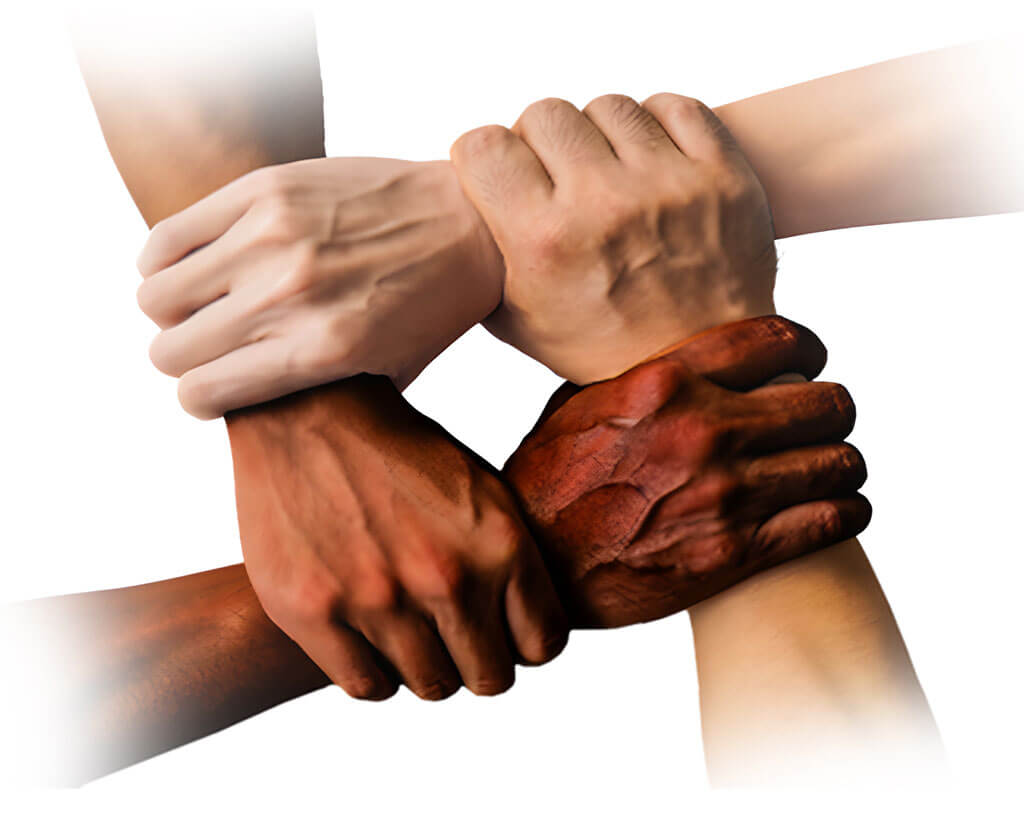
Distinguishing Varna and Jati from Caste
HSF4000 - (CPHS - Core Course) The Caste System invites both persistent international discourse as well as relentless intervention. This ... Read More
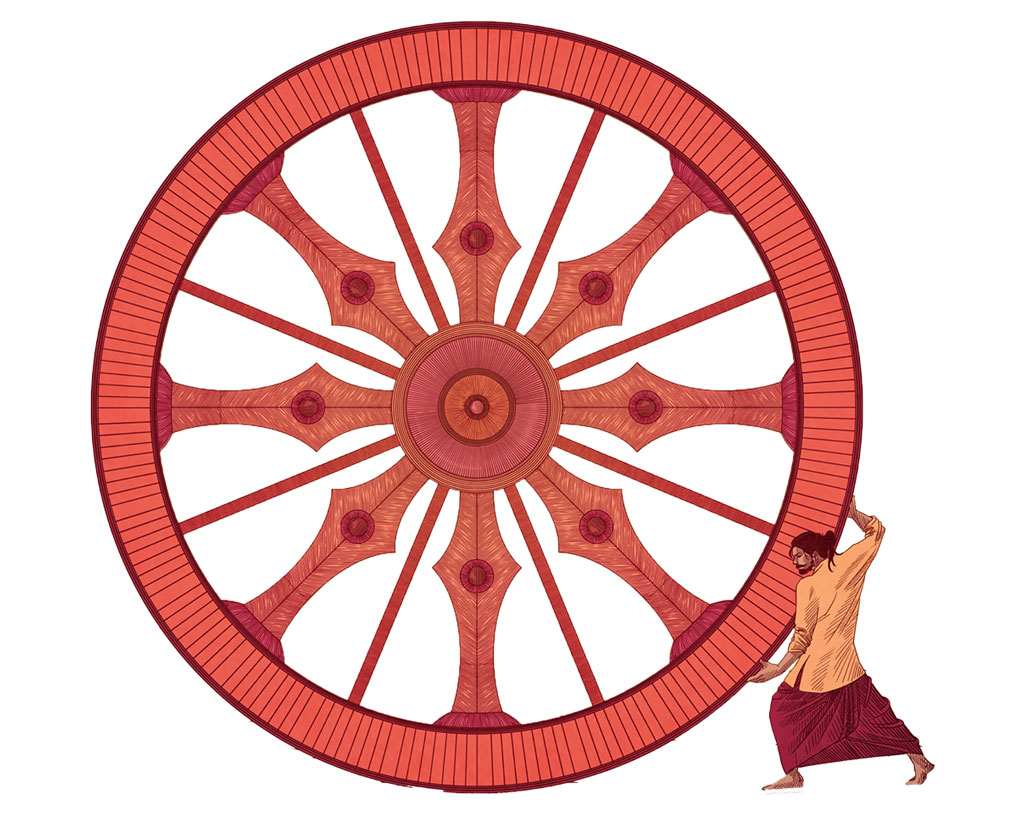
Svadharma – Discovering and Living our Life Purpose
HSF1101 – (CPHS – Core Course) A practical guide to – living our svadharma. Living in the contemporary world is ... Read More

Masterclass in Yoga Concepts
YOG4000 - Most people think of yoga as something done on a yoga mat in a yoga studio, and mostly ... Read More
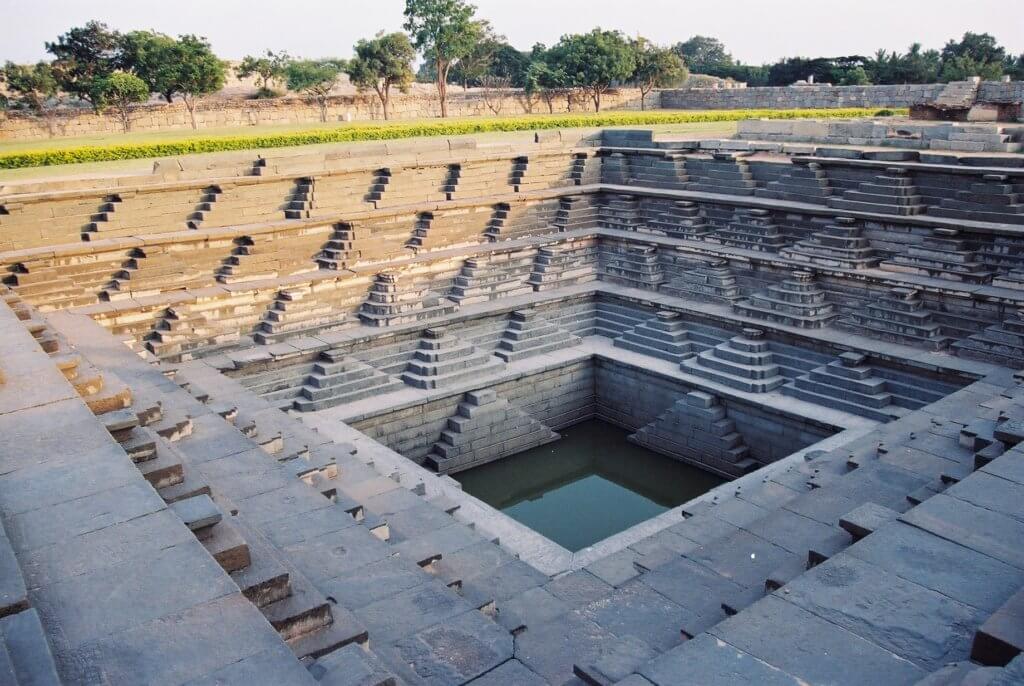
Introduction to Hinduism
HSF1000 - This course brings to life the central ideas and concepts that constitute the building blocks of Sanatana Dharma ... Read More
Chanakya’s Leadership Principles for the 21st Century
Chanakya’s Leadership Principles for the 21st Century
As part of Hindu University of America’s commitment to ongoing community education program, most courses available at the university including Graduate Division courses are open for registration from members of the community as continuing education students. Anyone including already employed professionals and prospective degree students may apply to any single course as a special student if they can demonstrate that they have the prerequisite preparation. They may discuss their preparedness to take any course with the course faculty or instructor.
Community Education Program
- The continuing education stream of courses is targeted towards people who wish to learn ongoingly, without pursuing a specific degree or certificate.
- There are no prerequisites enforced, other than those required by the faculty, and anyone may register. We invite prospective students to try out a course or two and come back for more
- Courses taken as part of community education program can be bundled together to earn certificates at a later stage.
No posts found.
DEHA – The principles of sound body in Bhagavad Gita
DEHA Principles of sound body in Bhagavad Gita
Course Content:
DEHA is the first of a three-course series titled, DEHA, GNANA and YOGA. The Deha course highlights the Material and Psychic aspects of the body. The Gnana course describes the Physical, Social, Occupational, Mental, Emotional and Spiritual dimensions of divine wisdom. The Yoga course explains the four paths of Yoga in Bhagavad Gita.
The DEHA Course helps students to understand, explore and apply the divine wisdom of the Bhagavad Gita in their own lives. It simplifies the learning process for the beginner using specially designed graphic workbooks, transliteration textbooks in multiple languages (12 Indian languages and 12 world languages) and guided audios, available in recitation and practice versions. The interactive sessions are conducted online in English.
The Course is divided into 3 modules – Sadhana, Sodhana and Vaadana through which Students will acquire a thorough overview of Hindu Dharma and enrich the quality of their spiritual lives.
Sadhana: In this module students understand the verses in three steps.
Step 1: Shloka Rachana (Copy writing the shloka): In this step each verse is written in a language of choice by copying from the transliteration textbook.
Step 2: Shloka Shravana (Listening to the verse): In this step the students will get to know the accurate pronunciation of each verse.
Step 3: Shloka Anucharana (Guided recitation): In this step students will learn the accurate pronunciation of each verse through guided practice. After this step the students would be able to independently practice the recitation using the guided chanting audios available online.
Sodhana: In this module students understand the meaning of the shlokas in 2 steps.
Step 4: Bhava Darshana (Graphic illustration): In this step the meaning of the verse is explained through graphic illustration.
Step 5: Pratipada Artha (Word meaning): In this step the word by word meaning of the shlokas is translated from Sanskrit to English.
Vaadana: In this module the interpretations of different acharyas to the shlokas of each lesson are explored to gain deeper meaning and summarized by the students in about 500 words. A debate on contemporary issues and situations is held towards end of the course. During the debate the students shall apply their learnings from the course and present their remarks and recommendations by referring to the specific shlokas of DEHA course.
Course Learning Objectives:
In this course students will be able to:
- Practice accurate pronunciation of the shlokas through guided chanting.
- Discover the interpretations from different commentaries on Bhagavad-Gita.
- Gain a deeper understanding of the Bhagavad Gita by comparing and analysing the similarities and differences between the interpretations of various acharyas.
- Comprehend the simultaneous co-existence of diverse understandings of the divine wisdom of Hindu Dharma, enshrined in its varied Sampradayas.
- Discover the foundations of Hindu Dharma from the Bhagavad-Gita.
- Gain an overview of the Hindu Wisdom, and Hindu Pathways for spiritual growth.
Class Structure:
There will be a minimum of 1.5 contact hours with faculty every week. The class is structured in a way that promotes discussion and debate based on self-study and reflection each week. After the weekly class the students will be required to submit audio recordings of verses and complete online assignments with drag and drop type questions.
Purchasable Readings before the Course: Bhagavad Gita with verse wise meaning and commentary by any author.
Required / Elective: Required
Prerequisites: N.A.
Faculty / Instructor: Mr. Gopi V. Prasad
Time: 11:00 am EST – 12:30 pm EST
Day: Every Sunday
Start Date: January 15, 2023
End Date: March 26, 2023
Quarter Offered: Winter 2023
Dhyaanam – Meditation and the Meditator
Dhyaanam – Meditation and the Meditator
Discover Dharma – A Study Tour in India
Course Code: HSF5011
Credit Hours: 4.5 Quarter-Credit-Hours
Course Level: 500
Discover Dharma – A Study Tour in India Course content:
This course is designed to offer an integral exploration of Dharma, involving both theory and experience. It is offered in the format of a Study Tour of India. Each time this course is offered, it may feature a different itinerary, visiting different parts of India and even different parts of the world connected with Sanatana Dharma. A Faculty will accompany the cohort of students who are part of the course. The tour will usually take between three and four weeks to complete. There will be a few classes via Zoom before and after the Tour. The Faculty joining the tour will discuss the specifics of the content of the course as well as the various destinations that the tour will be visiting. This Tour will be a once-in-a-lifetime unforgettable experience.
Course Learning Objectives:
In this course students will be able to:
a) Correlate the Geography and History of the India that is Bharat with the content of the text or tradition thar they are studying.
b) Integrate the experience of traveling through sacred and revered sites in India, with their understanding of Dharma.
c) Distinguish different layers and dimensions of Dharma expanding their understanding of its contemporary relevance.
d) Examine their personal worldview and life priorities in the light of their deepening appreciation of the possibilities of Dharma.
e) Synthesize a new vision, purpose or directions for their lives, in the light of their experience and learnings from this study tour.
Tour Itinerary # 1: The first inaugural Study Tour will trace the footsteps of Bhagavan Shri Rama from Ayodhya to Lanka and back. Rama is considered the very embodiment and incarnation of Dharma through the Sanskrit phrase Vigrahavan Dharma. He set a standard for Dharmia living and ethical behavior with the example of his life – as a man, as a son, as a brother, as a husband, as a King, as a defender of Dharma against Adharma. His life is revered today through the many ways in which his story is recounted starting with the Valmiki Ramayana. The Tour will begin in New Delhi, and trace his journey from Ayodhya, Chitrakoot, Prayagraj, Varanasi, Nashik, Panchavati, Lepakshi, Hampi, Kishkinda, Madurai, Rameswaram and various locations in Sri Lanka.
Please see more details about the Tour by visiting this Website page:
https://www.hua.edu/study-tour-course-in-the-footsteps-of-bhagawan-ram
Class Structure:
There will be a minimum of 1.5 contact hours with one or more faculty about two to three times before the tour begins and twice after the tour ends. The class is structured in a way that
prepares the students for the study-tour at the beginning and promotes discussion and debate based on students’ experience of the tour after it is completed. The Study Tour itself is an
immersive experience with classes, lectures and discussions woven throughout the tour. The subjects being discussed during the Tour will correspond with the places being visited. Faculty will discuss the assignments and expectations from the students in the first few sessions of the course. Graduate Students who are incorporating this course into the Field Based Learning course, will have to discuss the requirements for a paper submission with their Graduate Student Advisor.
Area of Study: Hindu Studies Foundation
Program: Community Education Program, Certificate Program in Hindu Studies
Required/ Elective: Elective
Prerequisites: Admission into program of study.
Faculty: Mr. Shantanu Gupta
Start Date: November 18, 2023
End Date: February 10, 2024
Time: 9:00 pm EST – 10:30 pm EST
Day: Every Saturday
(The fee is for reserving a sport in the tour. The Full price of the tour will be shared with the course participants separately)
Discover the contemporary Relevance of Hindu Dharma
Distinguishing Varna and Jati from Caste
Distinguishing Varna and Jati from Caste
The Doctor of Hindu Studies, builds on the foundations already developed by the Master’s Degree in Hindu Studies and offers students opportunities for deep specialization within a tradition or knowledge-system (also called Sampradāya a) and cross-disciplinary study, both across Hindu traditions and knowledge-systems as well as contemporary disciplines in the liberal arts, social sciences and humanities. Students can access courses offered both by HUA as well as its affiliate institutions and are developed for professional careers in teaching, writing, and scholarship, as well as public service, leadership and global engagement with religious organizations, social service and non-profit organizations and educational institutions.
Doctor of Hindu Studies
- For students who already possess a Master’s Degree in Hindu Studies, 60 Quarter Credit hours, or 20 courses are required to earn a Doctoral Degree
- Students who do not have a Master’s Degree in Hindu Studies but possess an equivalent of 2-years of post-bachelor’s degree education in the liberal arts, humanities or social sciences, may also apply. They may receive partial equivalency credit for courses they have taken as part of the Master’s Degree they have.
- Students who do not have a Master’s Degree already may apply for an accelerated MA-PhD Degree program.
- Typically, 90 Quarter Credit hours, or 60 Semester Credit Hours are required to earn an integrated Master’s and Doctoral Degree
- Once admitted into the accelerated program, students will have the option of completing their study with a terminal Master’s Degree or continue with their Doctoral Degree.
- To earn a Doctoral Degree, students will have to take a set of Research level “Core Courses” and specialize in one or two Areas of Study, at the Doctoral Seminar level
- All Students must pass a Doctoral Qualifying Exam, (DQE), and demonstrate an adequate level of proficiency in Sanskrit, in order to qualify for the Doctoral Thesis phase of the Program
- Students must write a Doctoral Dissertation based on original research as part of the Thesis Phase of their program. Ordinarily, the Doctoral Dissertation may take at least two years or more.
- Special Students with prior experience in religious, social work or community service, may be eligible to participate in a “Thesis Only” Doctoral Program, provided they qualify by successfully taking the Doctoral Qualifying Exam and can establish equivalency with the course work requirements.
- This “Thesis-Only” Option will require the student to write a Thesis over 36 months (or longer) and establish the equivalency for 60 Quarter Credit Hours.
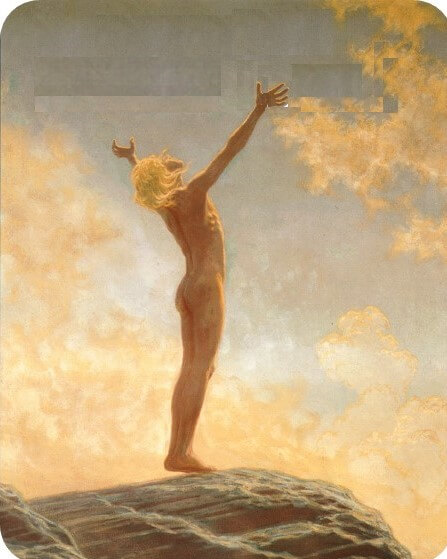
Aryanism and Indology
The idea of an Aryan “master race” has an enduring hold on the racist imagination. But when and how did
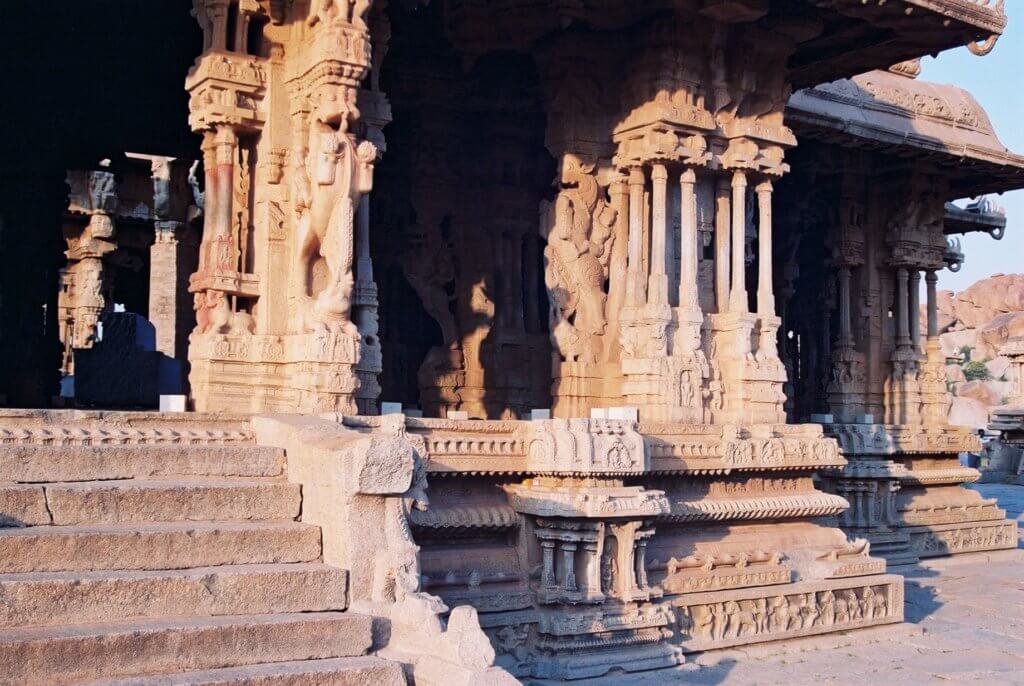
Critical Issues in Hindu Studies
PHS8300 - This course outlines the critical issues involved in the European understanding of Hindus and India, developed within the
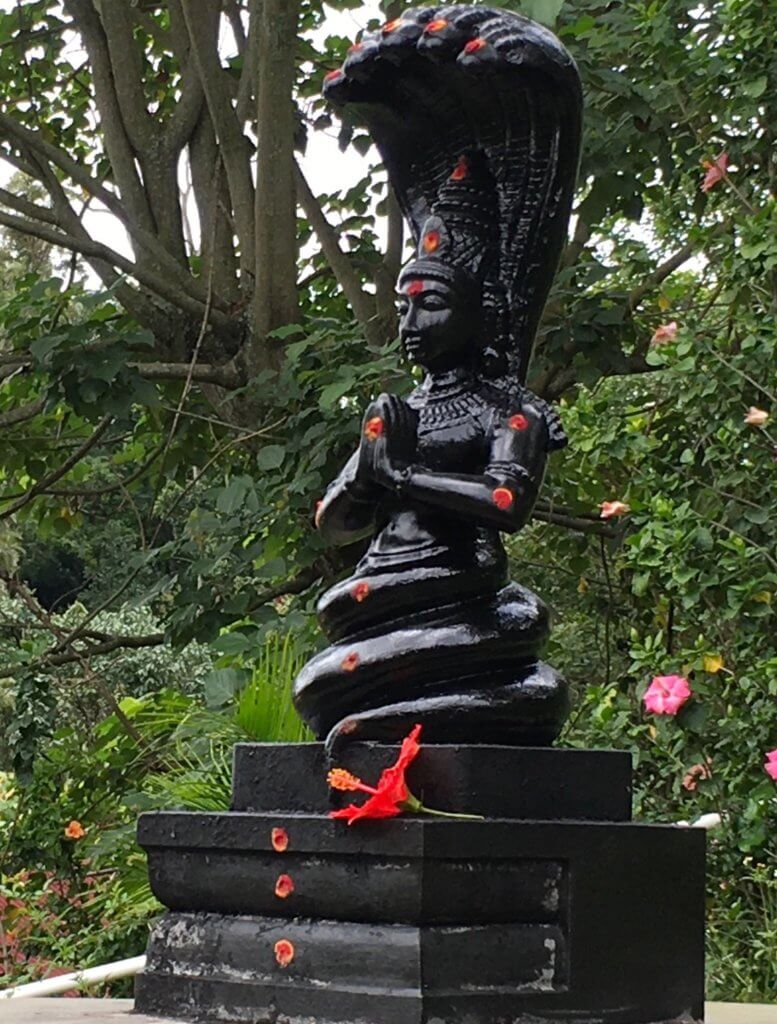
The Yoga Sutras of Patanjali
HSF6005 - The extraordinary popularity of Yoga worldwide is anchored on the versatility of its use and application. From fitness
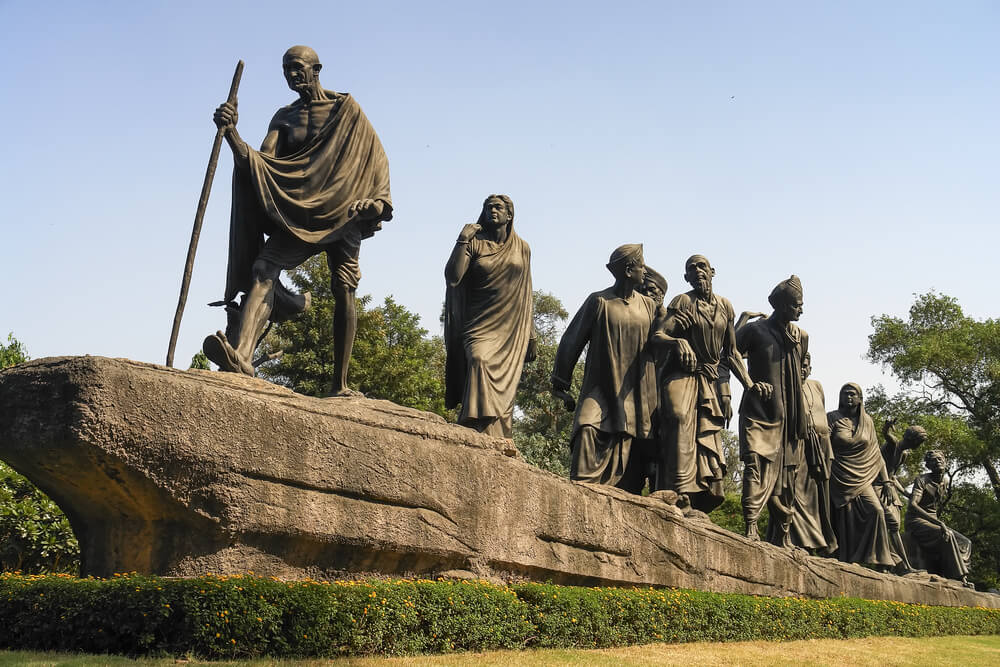
Gandhian Philosophy
CPS7503 - The relevance of Mahatma Gandhi for the contemporary world, characterized by turbulence, is indisputable. Gandhi’s principles of Ahimsa

Introduction to Conflict and Peace Studies
CPS 5501 An overview of conflict resolution and peace studies with a focus on the major theories and their application
Experience Incredible India
Experience Incredible India
Course Description:
This course offers a unique study abroad opportunity, that includes an authentic, enriching and transformative experience in India. This course is aimed at both students of Hindu University of America as well as people who are interested in participating in a journey of self-reflection and spiritual inquiry.
The course will immerse students into an intense experience of the social, historical, and cultural heritage of Hindu India. Students will discover through an original creative process, the possibilities for connecting more deeply with their own spiritual roots in a more holistic way and explore how to live on this planet with a sense of universal responsibility, and in harmony with all other beings with whom we share this world.
Course Content:
This course involves anywhere from 3 to 5 weeks of journeying in India, including several destinations, incorporating different areas of study. The journey will incorporate immersive experiences of the lifestyle of Yoga and Ayurveda. Students will explore different aspects of the ‘self’ and various wisdom traditions of India and examine them in the light of the challenges of modern life. Students will develop a greater understanding of the history, culture, and traditions of India as an alternate paradigm for life, in relation to the dominant western paradigm centered on material success.
Students will deepen their research into their own particular fields of intellectual interest, while gaining entirely new perspectives on life. They will develop a different understanding of global challenges facing humanity and identify creative solutions. This course can be taken as a part of several different programs or as a stand-alone course. It can also be enjoyed by people who have no academic interest, and simply want to enjoy travel to a world that is at once both ancient and contemporary.
The travel itineraries may vary each time the course is offered. People who enjoy traveling to India, can take the course multiple times, experiencing different aspects of India each time.
Course Learning Objectives:
In this course students will be able to:
1. Distinguish the Hindu paradigm and worldview more deeply.
2. Examine Hindu Life in close and intense proximity.
3. Contrast Modernity with Hindu Traditions
4. Integrate traditional Hindu Spirituality with Modern Life.
5. Create new ways of living and contributing in their own lives.
Area of Study: Hindu Studies Foundations
Prerequisites: None
Required / Elective: Elective
Instructor: TBD
Start Date:
End Date:
Day:
Time:
Quarter Offered:







